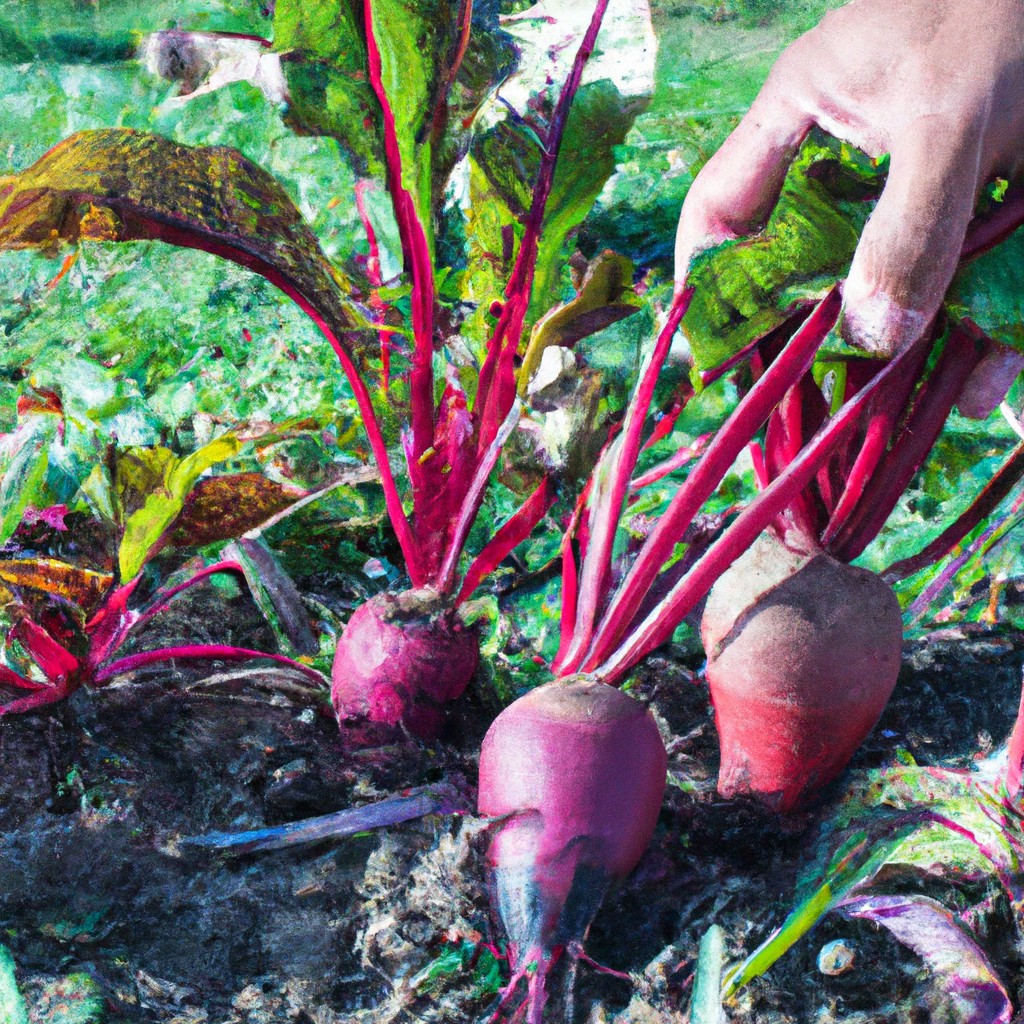Organic farming practices contribute to soil health by using methods like crop rotation, organic compost, and biological pest control which would enhance soil fertility and biodiversity.
Organic farming practices directly contribute to soil health by enhancing its biological activity and diversity. These practices, such as crop rotation, cover cropping, and composting, add organic matter to the soil, increasing its fertility and water-holding capacity. They also reduce soil erosion and nutrient runoff. As a result, organic farming fosters a robust soil ecosystem, which in turn supports healthier, more resilient crops.
This article delves deeper into the relationship between organic farming and soil health, providing a comprehensive understanding of how these eco-friendly practices contribute to sustainable agriculture.
Key takeaways:
- Organic farming practices enhance soil fertility and biodiversity.
- Organic farming contributes to a robust soil ecosystem.
- Soil health is crucial for resilient crops in organic farming.
- Organic farming practices focus on nutrient cycling and water retention.
- Soil biodiversity is a key indicator of soil health in organic farming.
The Basics of Organic Farming

Organic farming, a holistic approach to food production, focuses on preserving ecological balance and biodiversity. It significantly reduces the use of synthetic materials like pesticides and fertilizers, relying instead on natural processes and resources.
Key aspects involved:
- Utilization of crop rotation and cover crops, enhancing the soil’s nutrient cycle and disrupting the lifecycle of pests.
- Implementation of compost and green manure instead of synthetic fertilizers, promoting healthy, fertile soil.
- Encouragement of natural pest control methods such as beneficial insects, birds, and other organisms, reducing the dependence on synthetic pesticides.
- Adoption of livestock integration, where animals contribute to nutrient cycling, assisting in pest management and providing another income stream.
- Preservation of heirloom and heritage crops and livestock breeds, maintaining genetic diversity in our food systems.
Role and Importance of Soil Health in Organic Farming
Soil health serves as the foundation of organic farming. It is crucial for the growth of healthy, vigorous plants that can withstand disease and pests. Being the haven of a plethora of organisms, the soil functions as a biological system. The richness of its biodiversity contributes to nutrient recycling, organic matter decomposition, and the activation of soil fertility.
Key points to note include:
- A healthier soil promotes a greater diversity of organisms leading to resilient plant-health systems.
- Organic farming practices emphasize the increase in organic matter within the soil, fostering its water holding capacity, structure, and nutrient availability.
- A well-structured soil is crucial for crop roots to absorb water and nutrients efficiently.
- Soil health in organic farming aligns with sustainability and environmental stewardship. It reduces reliance on synthetic fertilizers and pesticides, thus minimizing harmful environmental impact.
- Soil biodiversity acts as an indicator of soil health, where a higher number of soil organisms signifies a healthier and more productive system.
Organic Farming Practices That Improve Soil Health
Organic farming cultivates a holistic approach to agriculture, incorporating a variety of practices that nurture soil health.
- Crop Rotation: Regular change in crops prevents soil exhaustion and breaks the life cycle of pests and diseases endemic to specific crops.
- Cover Crops: During off-seasons, these plants protect against erosion, suppress weeds, enhance soil composition, and manage nutrient levels.
- Composting: A myriad of organic materials, including vegetable scraps or livestock waste, decompose into nutrient-rich compost, feeding the soil and promoting microorganism growth.
- Green Manures: Quick-growing plants, such as clover and rye-grass, are integrated and decomposed back into the soil, allowing nutrient preservation.
- Reduced Tillage: Minimizing mechanical soil disturbance preserves soil structure, encourages biodiversity, and reduces erosion.
Engaging these practices provides the foundation necessary for fertile, healthy soil and a successful organic farm.
Impact of Organic Farming On Soil Biodiversity
Organic farming fosters an environment conducive to the thriving of organisms essential for soil health like earthworms, beetles, and a multitude of microorganisms. These players work industriously beneath the visibility, preserving the soil’s vitality by enhancing its structure, nourishing plant growth, recycling nutrients, and notably, benefiting natural pest control.
1. Integration of Crop and Livestock Systems: By integrating the two, organic farms can effectively recycle nutrients and stimulate a balanced ecosystem.
2. Use of Composts and Animal Manures: These organic materials feed the soil’s biota, increasing biodiversity and the soil’s ability to store carbon.
3. Crop Rotation and Cover Crops: Regular rotation mitigates pest and disease problems, aids in balancing nutrients, and contributes to the diversity of soil organisms. In turn, cover crops can provide a constant organic food source for soil organisms.
4. Reduced Chemical Inputs: Organics eschew synthetic fertilizers and pesticides, preventing biodiversity loss by avoiding the disturbance or destruction of microorganisms and other soil-dwellers.
Example of Successful Soil Health Management in Organic Farming
In the heartland of the United States, a simple shift towards organic farming has made a remarkable difference. The Peterson farm, a notable example, adopted the use of organic matter instead of synthetic fertilizers, changing their soil’s health status significantly.
Here are the key points that contributed to their success:
- Crop Rotation: Varying the crops grown on the land prevented soil exhaustion, enriching it with necessary nutrients.
- Application of Compost & Green Manure: Organic materials decompose to provide nutrients, improving soil structure and water retention capacity.
- No-Till Farming: Avoiding soil disturbances preserved the soil structure, enabling microorganisms to thrive.
- Cover Crops: Providing a protective cover for soil between cash crops prevented erosion and promoted the growth of beneficial organisms.
- Organic Pest Control: The focus on biological pest control methods helped maintain soil health, avoiding harmful chemical alterations.
Their practices underline the attainability of healthier, more robust soils through adopting organic farming methods, demonstrating that improved soil health and profitable farming can go hand-in-hand.
Addressing Challenges in Maintaining Soil Health Through Organic Farming Practices
Organic farming, while environmentally friendly, can encounter several formidable issues in sustaining soil health. These hurdles can be effectively addressed via the following methods:
1. Crop Rotation: Sequentially planting diverse crop species in a cyclical pattern disrupts the life cycle of pests, thereby reducing their population. This also allows different nutrient uptake patterns, preventing soil exhaustion.
2. Composting: It involves the decomposition of organic wastes into nutrient-rich humus. This increases the soil organic matter, which serves as a food source for soil microbes, improving soil structure and fertility.
3. Cover Crops: Growing certain crops like legumes when a field isn’t actively part of production can prevent soil erosion, improve soil fertility, and deter weed growth.
4. Conservation Tillage: Traditional plough-based tillage can lead to soil degradation. Conservation tillage, less disruptive by design, minimizes the loss of organic matter and helps maintain soil structure.
5. Natural Pesticide Use: Employing natural predators, parasites, or disease organisms can offer pest control without the downsides of chemical pesticides. This practice contributes towards maintaining soil biodiversity, crucial for its health.
Long-term Benefits of Organic Farming to Soil Health
Organic farming practices, with their focus on soil preservation and nutrient recycling, offer enduring benefits to soil health:
1. Nutrient Retention: Organic matter aids in holding vital nutrient particles within the soil, providing a constant nutrient supply to the crops.
2. Disease Resistance: Healthier, organic soils are naturally more resistant to pests and diseases, potentially reducing the need for further crop protection measures.
3. Soil Structure Improvement: The incorporation of organic material improves soil structure, facilitating better water infiltration and root growth.
4. Carbon Sequestration: By promoting the capture and storage of atmospheric carbon dioxide, organic farming reduces harmful greenhouse gas emissions.
5. Soil Biodiversity Enhancement: Organic methods enhance soil biodiversity, encouraging a wider range of soil organisms, which contribute to a more resilient and productive soil system.
By implementing organic farming practices over the long term, farmers can foster soil health and ensure sustainable agricultural productivity for generations to come.
FAQ
How do organic farming practices relate to soil health quizlet?
Organic farming practices relate to soil health by relying on the interaction between soil microbes and organic matter, and avoiding the use of pesticides and chemicals to ensure good crop production.
How does organic agriculture affect soil health?
Organic agriculture positively influences soil health by increasing its water-holding capacity, porosity, and aggregate stability which potentially offers higher crop yields during extreme weather conditions like drought and flooding.
How does organic matter improve soil health?
Organic matter enhances soil health by improving its structure, controlling soil erosion, facilitating water infiltration and retention, and creating optimal living conditions for plant roots and soil organisms.
Do organic farmers rely on soil health for good crop production?
Yes, organic farmers rely heavily on soil health for effective crop production.
What specific organic farming techniques contribute to enhanced soil health?
Organic farming techniques such as crop rotation, green manure, composting, and bio-pesticide usage greatly contribute to enhanced soil health.
How does the elimination of synthetic pesticides and fertilizers in organic farming support soil health?
Eliminating synthetic pesticides and fertilizers in organic farming supports soil health by promoting biodiversity, improving soil structure and water-holding capacity, and enhancing nutrient content.
In what ways does soil health influence the nutritional content of crops in organic farming?
Soil health significantly influences the nutritional content of crops in organic farming as nutrient-rich soil helps plants grow stronger and absorb more essential vitamins and minerals.
